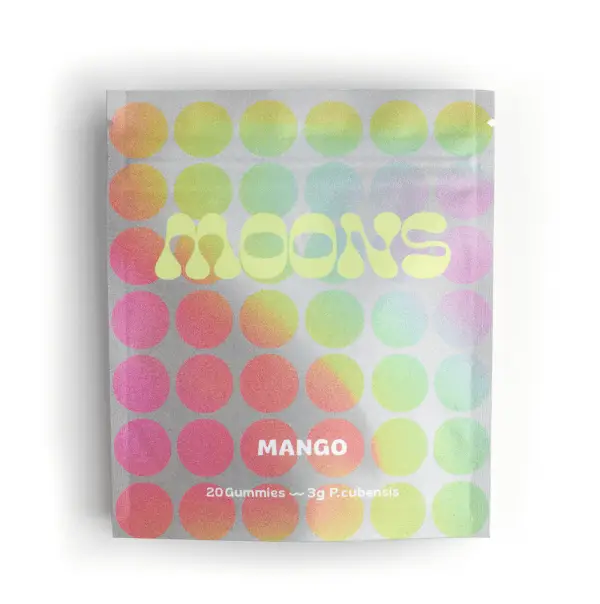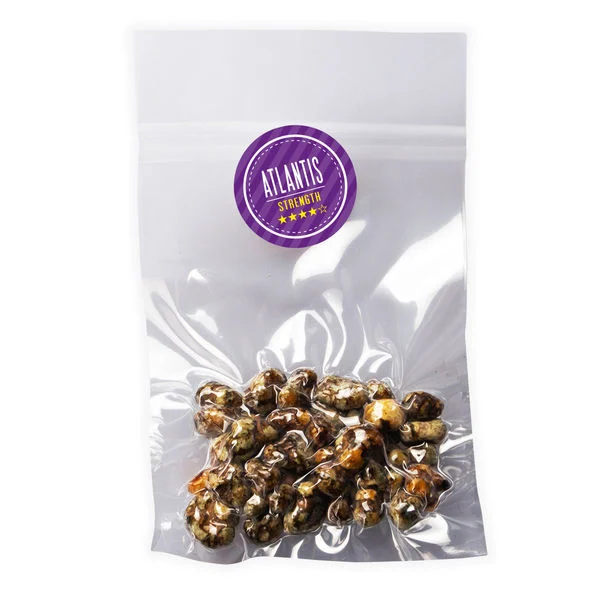Introduction
Mushrooms have long been celebrated for their culinary versatility, but their potential health benefits, particularly for brain health, are often overlooked. Recent studies have shed light on the remarkable properties of mushrooms, revealing their ability to promote cognitive function, protect against neurological damage, and even alleviate symptoms of depression and anxiety.
In this comprehensive guide, we will delve into scientific research and explore how mushrooms can enhance brain health. From the mechanisms behind their neuroprotective effects to the specific varieties that offer the greatest benefits, we will uncover the potential of mushrooms as a natural solution for nurturing our most vital organ.
The Power of Psilocybin: Rewiring the Brain for Mental Well-being
Psilocybin, a naturally occurring psychedelic compound found in magic mushrooms, has garnered significant attention for its transformative effects on brain health. Studies have shown that psilocybin can make dramatic and long-lasting changes in people suffering from treatment-resistant major depressive disorder, a condition that often does not respond to traditional antidepressants.
Understanding the Mechanisms of Psilocybin’s Effects
Psilocybin works by improving connections between different regions of the brain, allowing individuals to escape excessive rumination and self-focus commonly associated with depression.
When ingested, psilocybin is converted into psilocin, a chemical that interacts with serotonin receptors in the brain. Serotonin, often referred to as the “feel-good” hormone, plays a crucial role in regulating mood, satisfaction, and optimism.
The Neuroplasticity of Psilocybin
One of the most intriguing aspects of psilocybin is its ability to promote neuroplasticity, the brain’s capacity to reorganize and form new connections.
Studies have shown that psilocybin can increase neuronal outgrowth, the branching of neurons, and the formation of synapses, ultimately leading to enhanced communication between brain cells.
This neuroplasticity not only helps individuals gain new insights into their depression during a psilocybin trip but also allows them to lay down positive circuits that can be maintained over time.
Psilocybin’s Potential in Treating Various Mental Health Conditions
While psilocybin’s effects on depression have been extensively studied, emerging research suggests that it may also hold promise in treating other mental health conditions. Studies have shown the potential benefits of psilocybin in combating cluster headaches, anxiety, anorexia, obsessive-compulsive disorder, and various forms of substance abuse.
The ability of psilocybin to disrupt rigid patterns of thinking and promote flexibility in thought processes makes it a potential game-changer in the field of mental health treatment.
Unlocking the Potential of Medicinal Mushrooms: A Multifaceted Approach to Brain Health
Beyond psilocybin, a wide range of medicinal mushrooms have been found to offer significant benefits for brain health. These mushrooms contain bioactive compounds that contribute to their therapeutic and healing properties.
The Impact of Medicinal Mushrooms on Cognitive Function
Studies have shown that incorporating medicinal mushrooms into your daily diet can lower the risk of cancer by up to 45%, highlighting their powerful impact on overall health (Reference Article 2). However, their benefits extend beyond cancer prevention.
Medicinal mushrooms have been found to enhance cognitive function, improve neurotransmitter function, reduce inflammation and oxidative stress in the brain, and support the growth of brain-derived neurotrophic factor (BDNF). BDNF plays a crucial role in the growth, maintenance, and survival of nerve cells in the brain, ultimately promoting enhanced cognitive function and memory.
The Role of Lion’s Mane Mushroom in Neuroprotection
Among the various medicinal mushrooms, Lion’s Mane stands out for its potential neuroprotective properties. This unique mushroom has shown promise in protecting against neurological damage and promoting the growth of nerve tissue.
Early research suggests that Lion’s Mane may be beneficial for individuals with Alzheimer’s disease, multiple sclerosis, and Parkinson’s disease.
Reishi Mushroom: A Powerful Ally for Brain Health
Reishi mushrooms, revered for their medicinal properties, have demonstrated significant benefits for brain health. Studies have highlighted their potential to improve symptoms of Alzheimer’s disease by reducing the accumulation of beta-amyloid plaques in the brain.
Additionally, reishi mushrooms have been found to reduce oxidative stress and enhance antioxidant capacity, making them a valuable tool in combating age-related cognitive decline.
Chaga Mushroom and its Role in Brain Health
Chaga mushrooms, known for their unique appearance and impressive health benefits, have also shown potential in supporting brain health. Studies have found that chaga mushrooms can help improve learning and memory by reducing oxidative stress in the brain. Their ability to protect against cognitive decline makes them a valuable addition to any brain-boosting regimen.
Cordyceps Mushroom: Enhancing Brain Function
Cordyceps mushrooms have gained recognition for their potential brain-boosting effects. Research highlights their ability to enhance working memory, learning capacity, and cognitive function.
These mushrooms, known for their unique growth on insect larvae, offer a natural solution for those looking to improve their mental performance.
The Immune-Boosting and Anti-Aging Properties of Mushrooms
In addition to their brain health benefits, mushrooms offer a myriad of other advantages for overall well-being. They possess immune-boosting properties, contribute to anti-aging efforts, support blood sugar balance, promote digestive health, and provide essential micronutrients and B vitamins.
Immune-Boosting Potential of Mushrooms
Certain varieties of mushrooms, such as reishi, maitake, and turkey tail, have been extensively studied for their immunomodulatory effects.
Reishi mushrooms enhance immune function by stimulating the activity of immune cells and promoting the production of antibodies.
Maitake mushrooms, on the other hand, activate and enhance the function of natural killer cells, which play a crucial role in the body’s defense against infections and diseases.
Turkey tail mushrooms stimulate the production of immune cells, enhancing their activity and promoting a robust immune response.
Anti-Aging Properties of Mushrooms
Mushrooms, particularly reishi mushrooms, have been revered for their anti-aging properties. They possess potent antioxidant and anti-inflammatory effects, protecting against age-related damage caused by oxidative stress and chronic inflammation.
Cordyceps mushrooms also contribute to anti-aging efforts by decreasing pro-inflammatory activity and promoting longevity.
Blood Sugar Balance and Digestive Health
Maintaining balanced blood sugar levels is crucial for overall health, and certain mushrooms have shown the potential to support this delicate balance.
Reishi mushrooms have been found to regulate blood sugar levels by enhancing insulin sensitivity and improving glucose metabolism.
Maitake mushrooms, on the other hand, enhance insulin function and promote healthy blood sugar regulation.
Additionally, mushrooms like turkey tail and shiitake contain compounds that support digestive health by promoting the growth of beneficial gut bacteria and restoring gut barrier function (Reference Article 4).
Micronutrients and B Vitamins in Mushrooms
Mushrooms are a rich source of essential micronutrients and B vitamins. They contain selenium, a powerful antioxidant that supports immune function.
B vitamins, including B2, B3, B5, and B9 (folate), are crucial for cell growth, formation, and overall health (Reference Article 4). Their presence in mushrooms contributes to healthy hair, skin, nails, brain function, and heart health.
How to Incorporate Mushrooms into Your Diet
Now that we understand the incredible benefits that mushrooms offer for brain health, let’s explore how to incorporate them into our daily diet (Reference Article 4).
Exploring Mushroom Varieties
Mushrooms come in various shapes, sizes, and flavors. The most common variety is the button mushroom, but there are thousands of other options available. Each mushroom variety has its unique taste and texture.
For example, button or cremini mushrooms have a milder flavor and softer texture, while shiitake mushrooms are chewier and have an earthier taste. It’s best to experiment with different varieties to find the ones that suit your preferences.
Cooking with Mushrooms
Mushrooms can be used in a wide range of dishes, including soups, salads, stir-fries, and pasta dishes. They add a savory, umami flavor that enhances the overall taste of the dish.
When using fresh mushrooms, it’s important to clean them properly by rinsing them under gently running water or brushing them with a damp paper towel. This ensures that any dirt or debris is removed before cooking.
Mushroom Powders and Extracts
If you prefer a more concentrated form of mushrooms, you can try mushroom powders or extracts. These can be added to smoothies, soups, coffee, or tea, providing a convenient way to harness the healing properties of mushrooms for brain health (Reference Article 4). It’s essential to source these products from reputable suppliers to ensure their quality and purity.
Microdosing and Mushroom Stacking
For those interested in exploring the potential benefits of psilocybin mushrooms, microdosing may be a viable option. Microdosing involves taking tiny amounts of psilocybin mushrooms several times a week to maintain brain health and enhance creativity.
Some individuals also practice mushroom stacking, where a microdose of mushrooms is combined with additional substances believed to amplify the fungi’s benefits (Reference Article 5). The famous “Stamets Stack,” which includes niacin (vitamin B3) and Lion’s Mane mycelium, is one example of this approach (Reference Article 5).
However, it’s important to note that the scientific evidence for microdosing is still limited, and further research is needed to validate its claims (Reference Article 5).
Conclusion
Mushrooms offer a wealth of benefits for brain health, ranging from their neuroprotective effects to their immune-boosting and anti-aging properties. From psilocybin’s potential to rewire the brain and alleviate symptoms of depression to the cognitive-enhancing properties of medicinal mushrooms like Lion’s Mane and Reishi, the power of mushrooms in promoting brain health is undeniable.
By incorporating a variety of mushrooms into our diet and exploring the potential of psilocybin in a therapeutic setting, we can unlock the full potential of these remarkable fungi in nurturing our most vital organ. So, let’s embrace the power of mushrooms and embark on a journey towards enhanced brain health and overall well-being.
You Might Also Like These:




